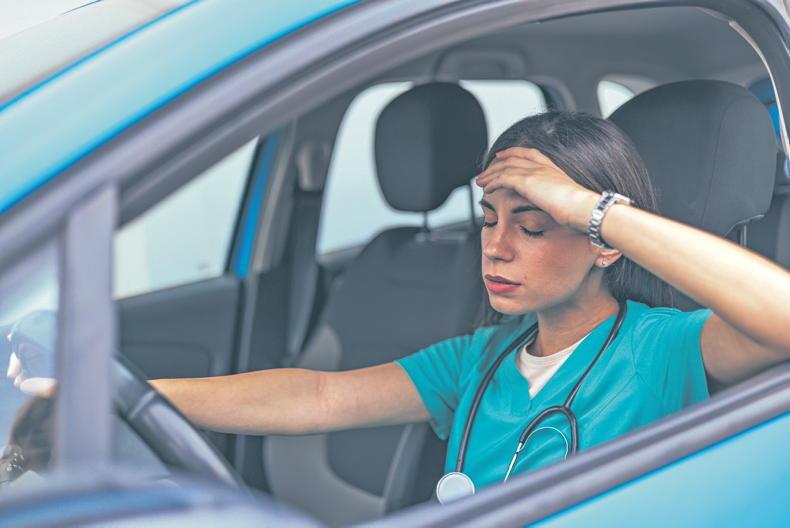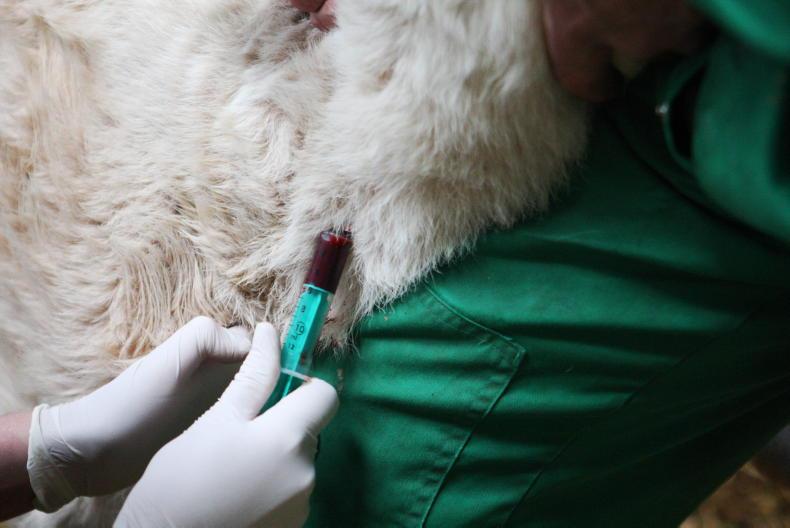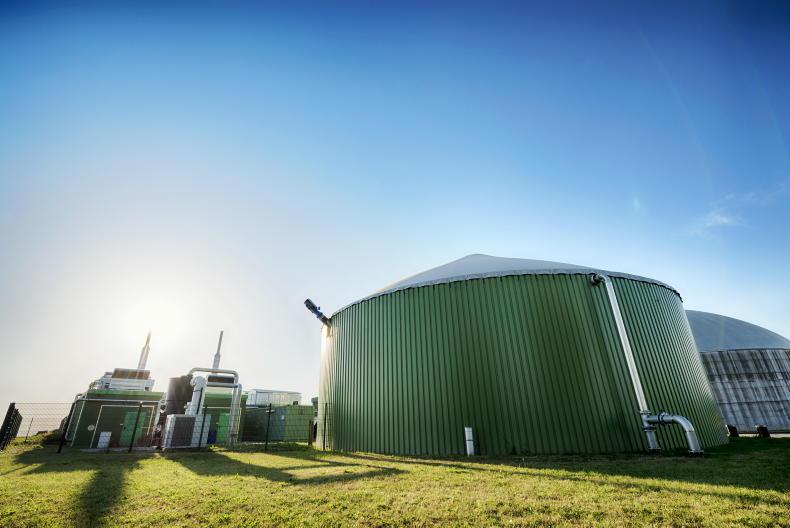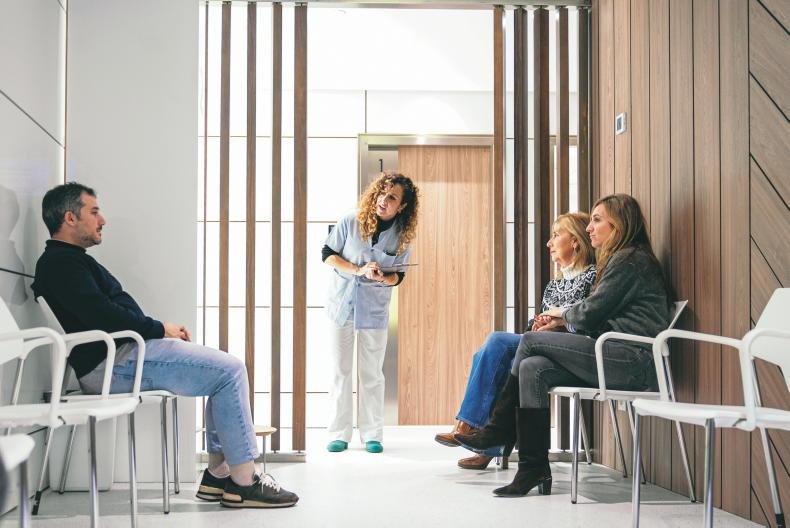A staggering €15.721m – that was the income generated from hospital car park fees in 2023, as reported by Irish Country Living in part one of our two-week investigation.
Research conducted via Freedom of Information (FOI) requests show that Cork University Hospital topped the list with an income of €2.2m from parking fees, followed by St Vincent’s University Hospital, Dublin (€2.04m) and St James’s Hospital, Dublin (€1.6m).
The new Programme for Government released last week stated, under cost cutting measures for patients that there was a need to “explore further ways to reduce hospital car parking charges”.
However, is this another empty promise? Recommendations by Government to cap parking fees at a rate of €10 per day were rolled out in 2018 and 2020 and yet this is still to be applied. In fact, the proposed working group which was to determine overall policy on the issue has not even been set up yet.
The money trail
The FOI requests by Irish Country Living not only asked how much money was taken in, we also dug deeper, requesting details of what it costs to run the car parks (maintenance etc) in the periods 2023 and half of 2024.
We also requested information on who runs the car parks – whether that is the hospital itself or an outsourced company. Figures for the first half of 2024 were only provided by a few, so they are not included.
The HSE informed us that arrangements for running its hospital car parks across the country differ.
A spokesperson said, “The HSE does not have a single contract to provide parking services at all hospitals, instead each hospital has its own arrangements, which reflect their particular circumstances.”
That comment did not surprise us. We have observed no uniformity in any aspect of car park management since the start of our investigation.
Breaking it down, we sent FOI requests to 37 hospitals (23 HSE acute and 14 voluntary hospitals). Eight of the hospitals informed us that they did not take in any money in car parking fees, either because they did not charge or they did not have their own car parks. Therefore, those hospitals are not included in this section as we analyse outgoings and income retained.
Of the 29 remaining, 14 stated that they ran the car park themselves, three hospitals did not provide us with information while the remaining 12 stated that they outsourced the task, totally or partially, to private companies.
For those that outsourced their operations, the key providers of this service in 2023 included:
• Euro Carparks, used by Letterkenny and Sligo University Hospitals and University Hospital Limerick.
• APCOA, used by St Vincent’s University Hospital and Portiuncula Hospital.
• Cork University Hospital had an arrangement with Skidata Ireland. The hospital in Mullingar had a partial arrangement in which Blue Wall managed the pay stations and controlled access to the car park.
A variety of approaches were employed but a trend that we observed overall is that many of the bigger hospitals tend to run operations themselves while smaller, more provincial ones, hand it over to car park companies.
This lack of uniformity is something that should be a focus for the working group, whenever it is set up that is.
Breakdown of costs
Through our FOI requests, 21 hospitals provided their cost figures which allowed Irish Country Living to calculate what percentage of their income was spent on running the car parks.
All hospitals were asked to give details of what it cost to run the car park(s) (maintenance etc) in the FOI request.
The hospitals that retained the most amount of income were:
• Cork University Hospital – 98% retained, spent 2% of its income on costs. When queried, we were told that if repairs were needed, eg pothole filling, this was paid for by HSE Estates. The hospital did not provide separate figures for this.
• Midland Regional Hospital Mullingar and Our Lady of Lourdes Hospital, Drogheda both retained 97% and spent 3% of their income on costs.
• University Hospital Waterford – 94% retained, spent 6% of their income on costs.
Those that are spending significant amounts of their income on car park maintenance include:
• The Coombe – 86% of income spent on costs.
• St Michael’s, Dun Laoghaire – 78% of income spent on costs.
• Letterkenny University Hospital – 66% of income spent on costs.
Although St James’ Hospital in Dublin was in the top three income earners for car park fees in 2023, it did not provide any detail related to costs, stating that it was going to tender soon and believed this information to be commercially sensitive.
Galway University Hospital underwent upgrade works in 2023 and spent a further €214,745 on top of its standard maintenance costs.
So where does the money go?
As part of our FOI requests, Irish Country Living asked hospitals where does the money go? As detailed last week, a significant amount of responses stated that monies went towards the operation of the hospital as well as running the car parks.
Annual running costs, depending on the size of the car park, can include staffing, security, insurance and repairs as well as access control (barriers and ticket machines).
Building the car park initially involves considerable expense too, of course, such as land purchase, tarmac, marking, signage, fencing, lighting and in some cases, lifts.
Looking at such costs, current construction figures show that the cost of a car park space stands between €2,000 and €3,500 per space in a surface car park.
For a multi-storey car park, that cost jumps considerably to between €15,500 and €27,000 per space. Going underground is more expensive again, starting upwards of €30,000 per space. This doesn’t include the cost of the land/site.
So, with car parks not coming cheap to build, no matter who builds them, we asked the HSE what its involvement with the initial costs is? “The HSE has funded the provision, refurbishment and replacement of a number of car parking facilities in acute hospitals in recent years,” we were told.
It didn’t say where.
“But there are also other arrangements in place via third party providers that manage and maintain these facilities, and in some cases assist with the initial upfront costs,” the statement continued.
This further supports the claim that even from the get-go, when parking is being planned and developed, there is a huge lack of consistency around the country.
Twenty-four of the hospitals say they provide free parking for staff. However, for those that don’t, parking can be a cost and a stress for staff, adding time onto their shift.
For example, parking is off site for staff at Our Lady of Lourdes in Drogheda. This is also the case at Cork University Hospital, where staff often must avail of a park-and-ride system as parking on site is very limited. The Mercy University Hospital in Cork rents spaces from nearby public car parks and charges staff who use them.
Staff car parking
Those working in Dublin hospitals face the biggest challenge. St Vincent’s University Hospital did provide free parking for staff in 2023 but re-introduced charges in 2024. Similarly, the Coombe Hospital, which was free in 2023 for staff, has introduced charges this month.
The National Maternity Hospital has limited availability while staff at the Rotunda pay a fee of €220-€275 per annum.
St Michael’s Hospital in Dun Laoghaire also rents spaces in a nearby shopping centre, charging staff to offset the cost.
The Irish Nurses and Midwives Association is concerned about lack of parking for staff and the safety issues associated with walking long distances to staff car parks in the dark, for a predominantly female workforce.
“Nurses and midwives often drive long distances to work because of poor public transport links and lack of affordable housing in the proximity of many hospitals,” said a spokesperson.
“Nurses and midwives work shifts, often ending or beginning at unsocial hours. A lack of adequate parking is a total disregard for the safety of a predominantly female workforce. Our members work long shifts, for many it is compounded by hours of commuting.”
Clarification: The figures provided for Letterkenny University Hospital, Tallaght University Hospital and Sligo University hospitals in week one of this series were the net income and not the overall income. The figures presented in the table are the correct overall incomes that these hospitals took in in 2023.
‘Technically there is a staff car park – but there is a long waiting list to get into it’

Staff find the car parking situation stressful. \iStock
Case study: *Kate a nurse working in Dublin
While patients and visitors may find themselves circling hospital car parks looking for spaces, this is also a stress for staff.
Some rise very early in order to get a parking space, on top of a long drive to their workplace.
Kate* is one such healthcare worker who commutes over an hour to work in a Dublin hospital but she has to add an extra 90 minutes to her journey in order to find a car park space nearby. She finds it very difficult, on day shift, to find somewhere safe to put her car.
“Technically there is a staff car park but there is a long waiting list to get into it,” she says.
“I was fined once for parking on a kerb in a nearby street and ever since then I have been leaving home at 5am to drive to work so that I can get a safe street space close to the hospital,” she says.
“Public transport wouldn’t work for me. If I was to use buses, I would have to drive to the nearest bus station then get two buses, the first one at 3am, in order to get to work for 7.30am.”
Kate works 13 shifts a month and prefers to work nights and weekends now because it removes the stress of finding a parking space.
“Monday to Friday, it’s very difficult but if you’re working nights or weekends, you’re allowed to use the main hospital car park. I could pay €10 a day to use the main car park when on day shift, and a few staff do that, but I don’t feel that is fair given that there aren’t enough spaces for patients and visitors.”
If Kate gets her chosen space on the residential street, around 6.30am she spends the hour before she starts work talking to colleagues who do the same thing – and she always has a blanket in the car to keep out the chill.
*Name changed for privacy reasons.
The Irish Parking Association has pointed out in the past that there is no such thing as free parking. “If hospitals were to provide free parking the money would have to come out of the overall hospital budgets,” they said. “Parking for staff has to be provided too. The money that comes in from visitors and patients goes into the pot to pay for all the parking costs – staff and visitor. VAT of 23% is also charged – an extra cost for hospitals. In most hospitals, regular visitors get discounted parking. There are also maintenance costs.”
Irish Country Living is running a petition online to cap hospital car park charges. Scan this QR code to sign and/or leave a comment. We will present our findings to government.

A staggering €15.721m – that was the income generated from hospital car park fees in 2023, as reported by Irish Country Living in part one of our two-week investigation.
Research conducted via Freedom of Information (FOI) requests show that Cork University Hospital topped the list with an income of €2.2m from parking fees, followed by St Vincent’s University Hospital, Dublin (€2.04m) and St James’s Hospital, Dublin (€1.6m).
The new Programme for Government released last week stated, under cost cutting measures for patients that there was a need to “explore further ways to reduce hospital car parking charges”.
However, is this another empty promise? Recommendations by Government to cap parking fees at a rate of €10 per day were rolled out in 2018 and 2020 and yet this is still to be applied. In fact, the proposed working group which was to determine overall policy on the issue has not even been set up yet.
The money trail
The FOI requests by Irish Country Living not only asked how much money was taken in, we also dug deeper, requesting details of what it costs to run the car parks (maintenance etc) in the periods 2023 and half of 2024.
We also requested information on who runs the car parks – whether that is the hospital itself or an outsourced company. Figures for the first half of 2024 were only provided by a few, so they are not included.
The HSE informed us that arrangements for running its hospital car parks across the country differ.
A spokesperson said, “The HSE does not have a single contract to provide parking services at all hospitals, instead each hospital has its own arrangements, which reflect their particular circumstances.”
That comment did not surprise us. We have observed no uniformity in any aspect of car park management since the start of our investigation.
Breaking it down, we sent FOI requests to 37 hospitals (23 HSE acute and 14 voluntary hospitals). Eight of the hospitals informed us that they did not take in any money in car parking fees, either because they did not charge or they did not have their own car parks. Therefore, those hospitals are not included in this section as we analyse outgoings and income retained.
Of the 29 remaining, 14 stated that they ran the car park themselves, three hospitals did not provide us with information while the remaining 12 stated that they outsourced the task, totally or partially, to private companies.
For those that outsourced their operations, the key providers of this service in 2023 included:
• Euro Carparks, used by Letterkenny and Sligo University Hospitals and University Hospital Limerick.
• APCOA, used by St Vincent’s University Hospital and Portiuncula Hospital.
• Cork University Hospital had an arrangement with Skidata Ireland. The hospital in Mullingar had a partial arrangement in which Blue Wall managed the pay stations and controlled access to the car park.
A variety of approaches were employed but a trend that we observed overall is that many of the bigger hospitals tend to run operations themselves while smaller, more provincial ones, hand it over to car park companies.
This lack of uniformity is something that should be a focus for the working group, whenever it is set up that is.
Breakdown of costs
Through our FOI requests, 21 hospitals provided their cost figures which allowed Irish Country Living to calculate what percentage of their income was spent on running the car parks.
All hospitals were asked to give details of what it cost to run the car park(s) (maintenance etc) in the FOI request.
The hospitals that retained the most amount of income were:
• Cork University Hospital – 98% retained, spent 2% of its income on costs. When queried, we were told that if repairs were needed, eg pothole filling, this was paid for by HSE Estates. The hospital did not provide separate figures for this.
• Midland Regional Hospital Mullingar and Our Lady of Lourdes Hospital, Drogheda both retained 97% and spent 3% of their income on costs.
• University Hospital Waterford – 94% retained, spent 6% of their income on costs.
Those that are spending significant amounts of their income on car park maintenance include:
• The Coombe – 86% of income spent on costs.
• St Michael’s, Dun Laoghaire – 78% of income spent on costs.
• Letterkenny University Hospital – 66% of income spent on costs.
Although St James’ Hospital in Dublin was in the top three income earners for car park fees in 2023, it did not provide any detail related to costs, stating that it was going to tender soon and believed this information to be commercially sensitive.
Galway University Hospital underwent upgrade works in 2023 and spent a further €214,745 on top of its standard maintenance costs.
So where does the money go?
As part of our FOI requests, Irish Country Living asked hospitals where does the money go? As detailed last week, a significant amount of responses stated that monies went towards the operation of the hospital as well as running the car parks.
Annual running costs, depending on the size of the car park, can include staffing, security, insurance and repairs as well as access control (barriers and ticket machines).
Building the car park initially involves considerable expense too, of course, such as land purchase, tarmac, marking, signage, fencing, lighting and in some cases, lifts.
Looking at such costs, current construction figures show that the cost of a car park space stands between €2,000 and €3,500 per space in a surface car park.
For a multi-storey car park, that cost jumps considerably to between €15,500 and €27,000 per space. Going underground is more expensive again, starting upwards of €30,000 per space. This doesn’t include the cost of the land/site.
So, with car parks not coming cheap to build, no matter who builds them, we asked the HSE what its involvement with the initial costs is? “The HSE has funded the provision, refurbishment and replacement of a number of car parking facilities in acute hospitals in recent years,” we were told.
It didn’t say where.
“But there are also other arrangements in place via third party providers that manage and maintain these facilities, and in some cases assist with the initial upfront costs,” the statement continued.
This further supports the claim that even from the get-go, when parking is being planned and developed, there is a huge lack of consistency around the country.
Twenty-four of the hospitals say they provide free parking for staff. However, for those that don’t, parking can be a cost and a stress for staff, adding time onto their shift.
For example, parking is off site for staff at Our Lady of Lourdes in Drogheda. This is also the case at Cork University Hospital, where staff often must avail of a park-and-ride system as parking on site is very limited. The Mercy University Hospital in Cork rents spaces from nearby public car parks and charges staff who use them.
Staff car parking
Those working in Dublin hospitals face the biggest challenge. St Vincent’s University Hospital did provide free parking for staff in 2023 but re-introduced charges in 2024. Similarly, the Coombe Hospital, which was free in 2023 for staff, has introduced charges this month.
The National Maternity Hospital has limited availability while staff at the Rotunda pay a fee of €220-€275 per annum.
St Michael’s Hospital in Dun Laoghaire also rents spaces in a nearby shopping centre, charging staff to offset the cost.
The Irish Nurses and Midwives Association is concerned about lack of parking for staff and the safety issues associated with walking long distances to staff car parks in the dark, for a predominantly female workforce.
“Nurses and midwives often drive long distances to work because of poor public transport links and lack of affordable housing in the proximity of many hospitals,” said a spokesperson.
“Nurses and midwives work shifts, often ending or beginning at unsocial hours. A lack of adequate parking is a total disregard for the safety of a predominantly female workforce. Our members work long shifts, for many it is compounded by hours of commuting.”
Clarification: The figures provided for Letterkenny University Hospital, Tallaght University Hospital and Sligo University hospitals in week one of this series were the net income and not the overall income. The figures presented in the table are the correct overall incomes that these hospitals took in in 2023.
‘Technically there is a staff car park – but there is a long waiting list to get into it’

Staff find the car parking situation stressful. \iStock
Case study: *Kate a nurse working in Dublin
While patients and visitors may find themselves circling hospital car parks looking for spaces, this is also a stress for staff.
Some rise very early in order to get a parking space, on top of a long drive to their workplace.
Kate* is one such healthcare worker who commutes over an hour to work in a Dublin hospital but she has to add an extra 90 minutes to her journey in order to find a car park space nearby. She finds it very difficult, on day shift, to find somewhere safe to put her car.
“Technically there is a staff car park but there is a long waiting list to get into it,” she says.
“I was fined once for parking on a kerb in a nearby street and ever since then I have been leaving home at 5am to drive to work so that I can get a safe street space close to the hospital,” she says.
“Public transport wouldn’t work for me. If I was to use buses, I would have to drive to the nearest bus station then get two buses, the first one at 3am, in order to get to work for 7.30am.”
Kate works 13 shifts a month and prefers to work nights and weekends now because it removes the stress of finding a parking space.
“Monday to Friday, it’s very difficult but if you’re working nights or weekends, you’re allowed to use the main hospital car park. I could pay €10 a day to use the main car park when on day shift, and a few staff do that, but I don’t feel that is fair given that there aren’t enough spaces for patients and visitors.”
If Kate gets her chosen space on the residential street, around 6.30am she spends the hour before she starts work talking to colleagues who do the same thing – and she always has a blanket in the car to keep out the chill.
*Name changed for privacy reasons.
The Irish Parking Association has pointed out in the past that there is no such thing as free parking. “If hospitals were to provide free parking the money would have to come out of the overall hospital budgets,” they said. “Parking for staff has to be provided too. The money that comes in from visitors and patients goes into the pot to pay for all the parking costs – staff and visitor. VAT of 23% is also charged – an extra cost for hospitals. In most hospitals, regular visitors get discounted parking. There are also maintenance costs.”
Irish Country Living is running a petition online to cap hospital car park charges. Scan this QR code to sign and/or leave a comment. We will present our findings to government.












SHARING OPTIONS